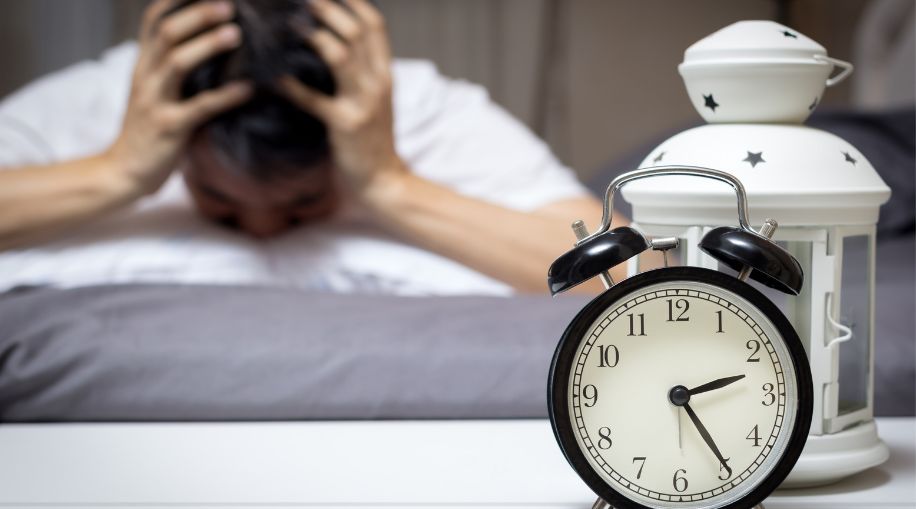The Silent Symptoms
Good sleep is one of the most important elements of living a happy and healthy life. But when you struggle with your sleep, maintaining a healthy life can be a challenge.
Signs of Sleep Disorders
Difficulty Falling or Staying Asleep
A common indicator of sleep disorders is insomnia, or having trouble falling asleep or staying asleep. If you find yourself lying awake for long periods, waking up frequently during the night or waking up too early and unable to get back to sleep, you may be experiencing insomnia.
Loud Snoring or Gasping for Air
Loud snoring or waking up gasping for air might be a sign of sleep apnea. Sleep apnea is a disorder in which breathing repeatedly stops and starts during sleep. People with sleep apnea often don’t realize their breathing is disrupted, but loud snoring, gasping or choking sounds can be clues. It often requires another person to point it out to realize you’re struggling with sleep apnea.
Frequent Headaches in the Morning
Morning headaches are a possible symptom of sleep apnea, especially when paired with snoring and daytime fatigue. The frequent interruptions in breathing can reduce oxygen levels, leading to headaches upon waking.
Difficulty Concentrating or Memory Issues
Difficulty concentrating, trouble remembering information or even mood swings and irritability can be a sign of a sleep disorder. This is because a disrupted night of sleep can impact your cognitive processes. Sleep disorders can prevent your brain from completing its essential functions, leaving you feeling foggy or distracted.
Changes in Mood or Behavior
Sleep disorders can lead to mood swings, depression and anxiety. Conditions like insomnia and sleep apnea can lead to or exacerbate mental health issues due to poor sleep quality. If you notice a change in mood, irritability or increased stress without an apparent cause, it could be because of regular or severe sleep disruption.
Daytime Fatigue and Sleepiness
Feeling constantly tired and struggling to stay awake during the day, despite getting a full night’s rest, can be a sign of a sleep disorder. Daytime fatigue is a common symptom of disorders like sleep apnea or narcolepsy, where sleep disruptions prevent the body from reaching restful, deep sleep stages.
Sudden Muscle Weakness or Paralysis
If you experience sudden muscle weakness or episodes of paralysis, you may have narcolepsy. Narcolepsy is a brain disorder that causes people to experience excessive daytime sleepiness and sudden, uncontrollable sleep attacks, often without any warning.
Unusual Movements During Sleep
Restless legs syndrome (RLS) and periodic limb movement disorder (PLMD) cause unusual movements during sleep. People with RLS feel an irresistible urge to move their legs, usually because of uncomfortable sensations, which can interrupt sleep. PLMD can look like repetitive leg jerking, causing sleep disruption.
Falling Asleep at Inappropriate Times
Experiencing sudden, uncontrollable sleep episodes can be a sign of narcolepsy. These "sleep attacks" may happen in the middle of conversations or activities, impacting your daily life and posing potential safety hazards, especially if they occur while driving or working.
Treatment Options
Lifestyle Changes
For many people, adjusting lifestyle habits can make a large difference in the quality of their sleep. Healthy habits such as limiting caffeine, alcohol and screen time, practicing good sleep hygiene and creating a consistent sleep schedule can massively increase sleep quality.
Cognitive Behavioral Therapy for Insomnia (CBT-I)
CBT-I is a highly effective therapy for those struggling with insomnia. It involves techniques to change thinking patterns and behaviors around sleep, helping improve sleep quality and reduce sleep latency.
Medications
Certain medications can aid with sleep disorders, including sleep aids for insomnia and stimulants for narcolepsy. Medications like CPAP (Continuous Positive Airway Pressure) are often prescribed for sleep apnea to keep airways open during sleep.
Iron Supplements for Restless Legs Syndrome
Iron supplements have been shown to help with RLS, as it has been linked to low iron levels. These supplements may help alleviate symptoms and increase sleep quality.

